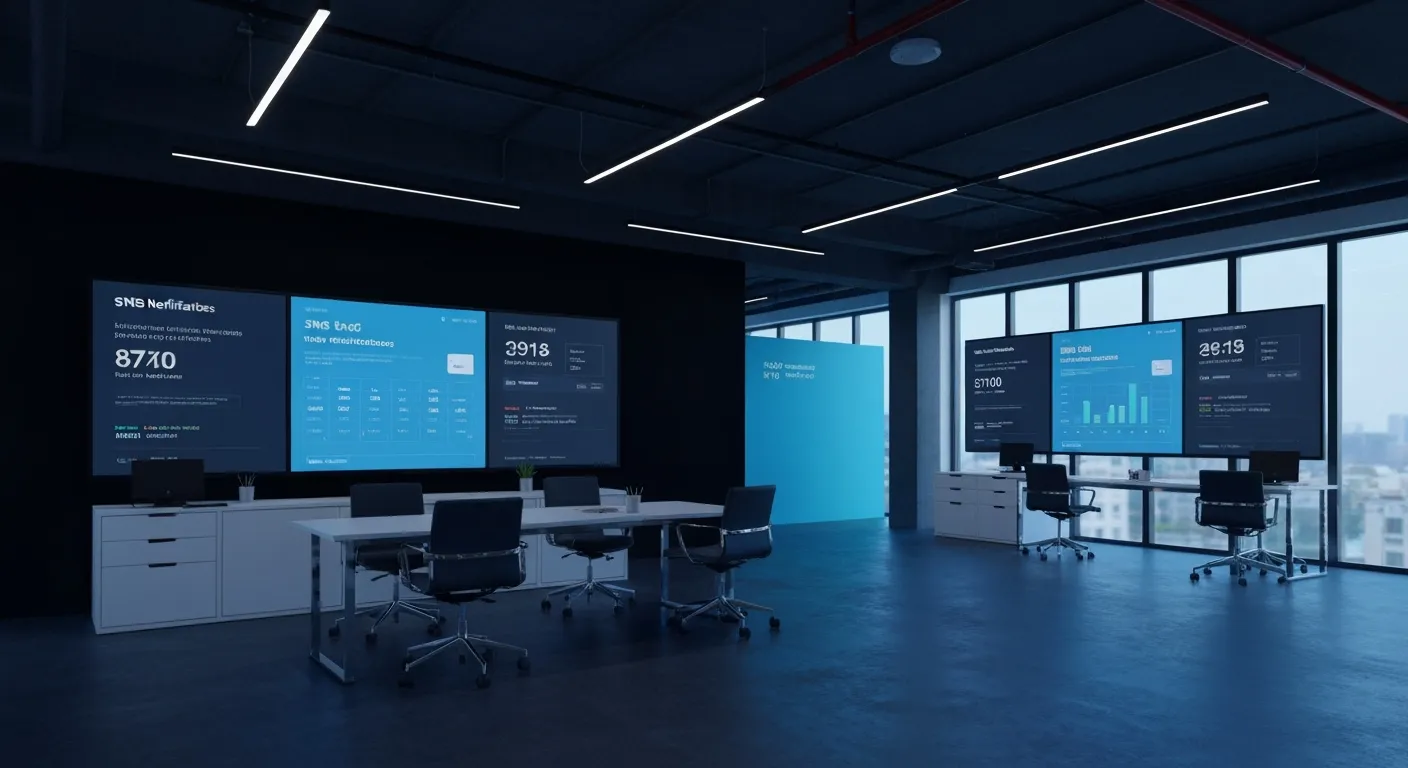Unlocking the Power of SMS in Modern Event Management
In an era where efficient communication can make or break an event, SMS platforms have emerged as indispensable tools for event organizers. Boasting a remarkable 98% open rate and rapid response capabilities, SMS messaging revolutionizes how events are promoted, managed, and enhanced. This article explores how integrating SMS technology into event management processes optimizes communication, boosts attendance, streamlines logistics, and improves overall attendee engagement, providing actionable strategies and insights grounded in industry best practices.
Transforming Event Communication and Coordination through SMS Platforms
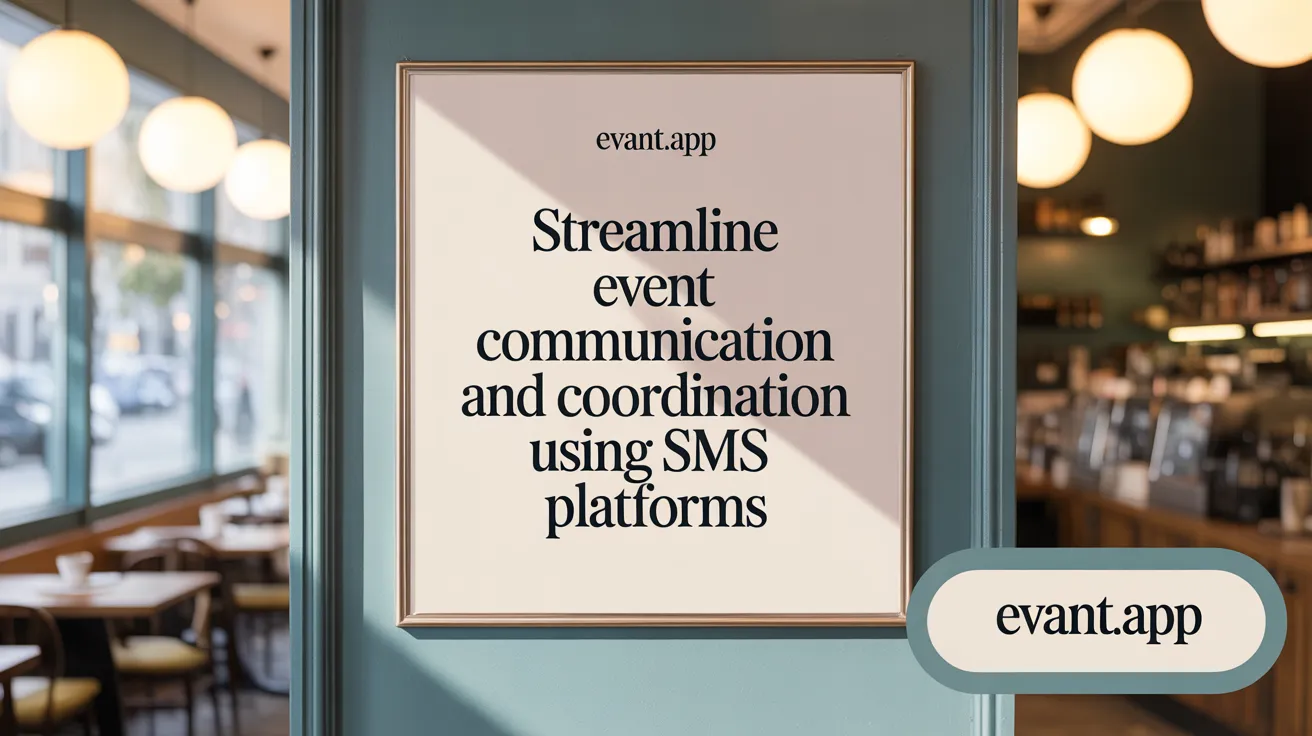
How can SMS platforms optimize and enhance event management processes such as communication, promotion, coordination, and engagement?
SMS platforms significantly improve event management by providing immediate, personalized communication to large audiences. For an in-depth overview, see SMS for Event Management.
Real-time messaging ensures that attendees receive timely updates about schedules, venue changes, or emergencies, helping to prevent confusion and enhance safety. Explore Real-Time Event Updates via SMS for related insights.
For event promotion, SMS campaigns can generate buzz through reminders, early-bird offers, and countdown alerts, which boost attendance rates. Learn more about Effective Event SMS Strategies.
During events, SMS can be used to coordinate staff, send session reminders, and communicate last-minute adjustments quickly and efficiently. Check Using SMS in Event Logistics for practical applications.
Automation tools allow organizers to schedule messages in advance and segment contacts based on attendee types, ensuring relevant and targeted communication. See Automating SMS Messaging and Audience Segmentation in SMS Marketing for techniques.
High open rates—around 98%—mean messages are almost always seen within minutes, enabling fast responses and engagement. More information is available at SMS Open Rate Statistics.
Furthermore, integration with CRM and registration systems synchronizes attendee data, streamlines workflows, reduces manual effort, and enhances overall attendee experience. See Integrating SMS with Event Platforms and Event Management Software for details.
These features collectively lead to more organized, responsive, and engaging events, ultimately increasing satisfaction and ROI. For a comprehensive technology perspective, refer to Event Technology Guide.
More info: The benefits of real-time SMS communication in event management include increased attendance, efficient logistics, and improved stakeholder engagement. See Benefits of SMS Communication for Retail Events for extended discussion.
Boosting Attendance and Engagement: The Benefits of SMS Messaging
SMS messaging has become an essential tool for event organizers aiming to maximize attendance and foster active participation. Its high open rate of 98% ensures that messages are immediately seen by recipients, often within minutes, making it highly effective for delivering timely reminders and last-minute updates. This immediacy directly contributes to reducing no-shows, as attendees are consistently reminded of the event details, such as date, time, and venue (Reduce event no-shows with SMS reminders, SMS open rate statistics).
Personalization and segmentation further enhance SMS effectiveness. By tailoring messages based on attendee groups—VIPs, volunteers, or specific interest sectors—organizers can send relevant content that resonates personally, increasing the likelihood of engagement. Whether it's a special offer, session highlight, or important change, targeted messages help build a sense of exclusivity and responsiveness (Personalized SMS for events, Segmented SMS Messaging).
Automation and segmentation capabilities facilitate efficient workflows, allowing organizers to schedule messages in advance and trigger automatic responses. From registration confirmations to post-event surveys, these features streamline communication processes and maintain continuous engagement, which is crucial for building long-term relationships (Automating SMS messaging, Automated SMS campaigns).
The cost-effectiveness of SMS cannot be overstated. Compared to traditional advertising and outreach channels, SMS campaigns require fewer resources and deliver a high return on investment. They also provide real-time data on delivery and response rates, enabling organizers to measure campaign success and refine strategies accordingly (Cost-Effective Event Communication, Benefits of SMS Communication).
Finally, post-event feedback collection via SMS surveys offers a quick and convenient way to gather insights. Attendees can respond with minimal effort, providing valuable data that helps improve future events (Post-event feedback via SMS, Collecting Feedback via SMS). Overall, integrating SMS messaging into event workflows leads to increased attendance, higher engagement levels, and stronger attendee relationships, directly impacting the success of any event (Effective event engagement, Increasing event attendance with SMS).
For more detailed metrics and impact analysis, searching "SMS impact on event attendance and engagement metrics" can reveal studies and case reports that demonstrate its effectiveness.
Best Practices and Strategies for Implementing SMS in Event Planning
Implementing SMS technology effectively in event planning involves several critical strategies. First and foremost, obtaining explicit consent through SMS opt-in shortcodes methods is essential, including online forms or shortcodes, to ensure compliance with privacy regulations and foster trust with attendees.
Designing concise and personalized message templates is vital. Clear calls-to-action, such as RSVP links or schedule updates, help guide recipients toward desired responses. Personalization based on attendee segmentation enhances relevance and engagement, making messages more impactful (see Audience Segmentation for Event SMS).
Timing is crucial for maximizing effectiveness. Sending reminders 24 hours before, one hour prior, and closer to the event increases attendance and keeps attendees informed without overwhelming them (Event Reminder SMS, Event Reminders and Updates).
Automation tools are indispensable for streamlining communication. Platforms like Twilio or MessageBird allow scheduling messages, setting up triggers for specific actions, and automating follow-ups during various stages of the event lifecycle (Automating SMS messaging, Automated SMS campaigns).
Selecting a reliable and scalable platform is another important step. These platforms should support features such as response tracking, analytics, and integration capabilities with other event management systems, enabling continuous campaign optimization (Using SMS in event management, Event management software).
Finally, monitoring campaign performance through key metrics—such as open rates, response rates, and RSVP confirmations—is essential. Analyzing these insights allows organizers to refine messaging strategies, improve engagement, and ensure that SMS communications contribute positively to the overall event experience (SMS open and response rates, Event SMS Engagement Metrics, Measuring SMS Campaign Performance).
Key SMS Platform Features Supporting Comprehensive Event Management
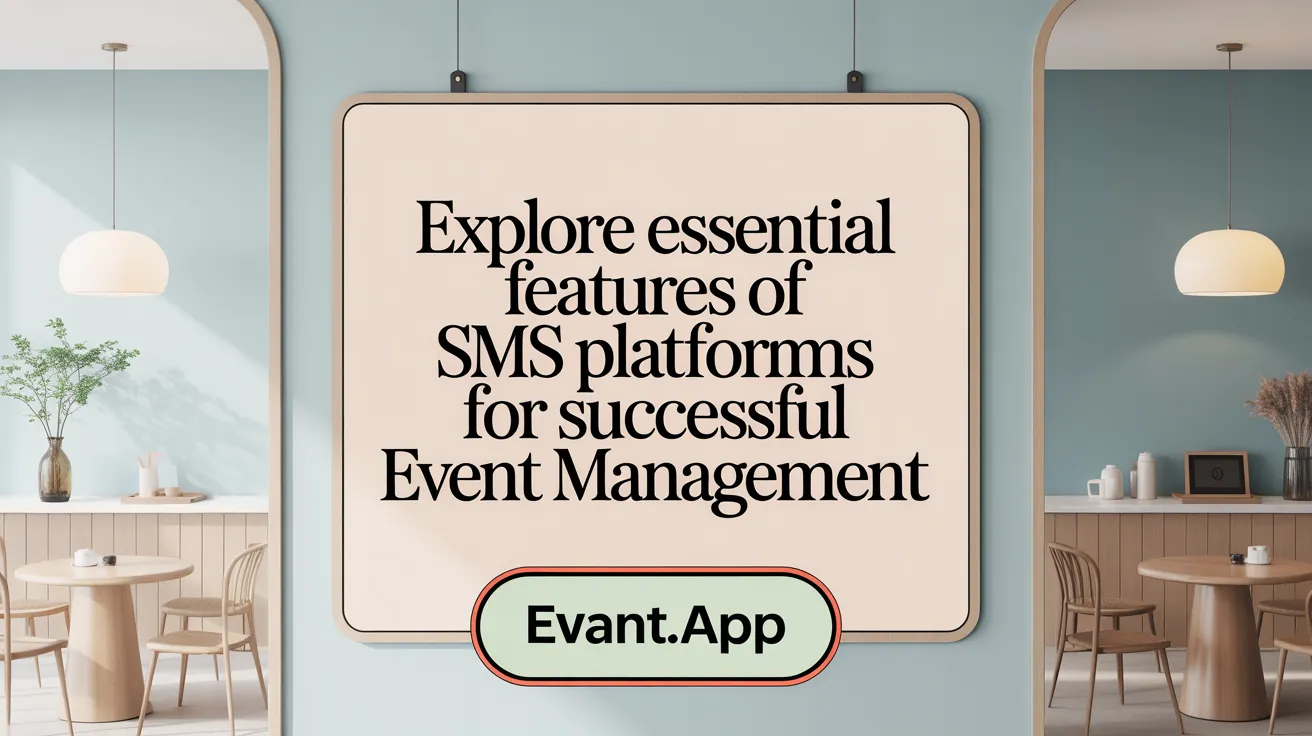
When managing events efficiently, an SMS platform must incorporate several essential features to facilitate communication across all phases of an event. First, targeted messaging and contact segmentation are vital; platforms should support importing contacts via uploads or integrations, enabling organizers to categorize audiences such as VIPs, attendees, vendors, or staff. This segmentation allows for personalized messages that resonate, increasing engagement.
Automation capabilities play a crucial role in reducing manual effort. Effective platforms should enable scheduling of reminders—such as registration confirmations, session alerts, or post-event surveys—and automate responses or follow-up messages. For example, automatic session reminders or last-minute updates streamline communication and ensure timely dissemination of information.
Seamless integration with CRM and registration systems ensures data consistency. Syncing attendee data allows for tailored messaging based on registration details, preferences, or behaviors, creating a cohesive communication flow that connects marketing, registration, and on-site management.
Compliance management tools are also essential; platforms should facilitate easy adherence to legal standards like opt-in/opt-out processes and contain features to ensure messaging practices respect privacy laws and recipient preferences. Such tools help with legal compliance and respecting recipient privacy.
Finally, real-time delivery tracking and analytics empower organizers to monitor message performance. These features provide insights into delivery success, open rates, responses, and engagement levels, enabling continuous improvement and strategic adjustments. See more about delivery tracking and analytics.
In summary, a powerful SMS platform supporting event management must combine contact segmentation, automation, system integrations, compliance tools, and analytics. These features collectively enable efficient, personalized, and compliant communication that enhances attendee experience and operational success.
| Feature | Functionality | Benefit |
|---|---|---|
| Contact Import & Segmentation | Upload contacts, categorize audiences | Personalized messaging, targeted engagement |
| Campaign Scheduling & Automation | Pre-set message timing, automated responses | Saves time, ensures timely communication |
| CRM & Registration System Integration | Sync data with registration and CRM systems | Cohesive messaging based on attendee data |
| Compliance & Consent Tools | Manage opt-in/opt-out, legal messaging features | Legal compliance, respecting recipient privacy |
| Delivery & Response Analytics | Track message status, open rates, responses | Measure effectiveness, optimize future campaigns |
This comprehensive set of features ensures SMS platforms are equipped to streamline event communication, enhance attendee engagement, and support successful event outcomes.
Seamless Integration of SMS with Event Management Ecosystems
Integrating SMS with broader event management systems is crucial for streamlining event communication and enhancing attendee engagement. This integration primarily relies on robust API connections that enable seamless data exchange between SMS platforms and other software such as registration systems, CRM tools, and event dashboards.
APIs allow for automatic data synchronization, ensuring that attendee information, session schedules, and logistical details are constantly updated across platforms. For example, when an attendee registers through an event platform, their contact details are automatically shared with the SMS system, allowing for personalized confirmation messages or reminders, improving SMS open and response rates.
Automation plays a vital role by triggering targeted SMS communications based on specific event milestones or attendee actions. This could include sending reminders, updates about schedule changes, or logistical instructions without manual intervention. As a result, event organizers can deliver timely and relevant messages, improving overall attendee experience and real-time event updates.
Real-time updates are facilitated through API integrations that enable instant dissemination of critical information, such as venue shifts or emergency alerts, directly from event management systems to attendees' mobile devices. This immediacy helps reduce confusion and enhances safety during events, as covered in SMS for critical event updates.
Analytics integration is another benefit, where data from SMS interactions—such as delivery success rates, response metrics, and engagement levels—are aggregated into the event’s analytics dashboard. This comprehensive view supports data-driven decisions, allowing organizers to refine communication strategies for future events.
Overall, the integration of SMS via APIs with event management ecosystems ensures a cohesive, responsive, and data-rich environment that enhances operational efficiency and attendee satisfaction, aligning with event technology trends and effective event SMS strategies.
Versatile Applications of SMS Across Event Types and Industries
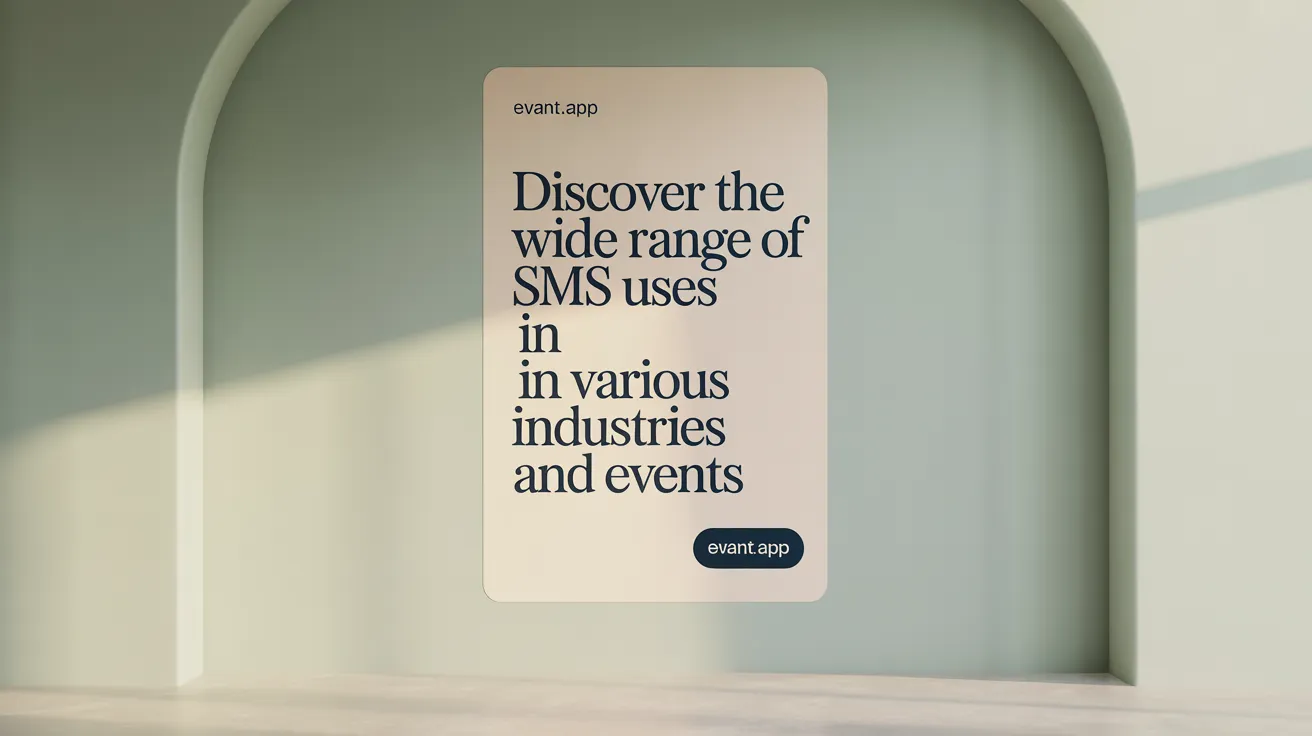
SMS messaging plays a vital role in numerous industries, offering immediate and personalized communication that enhances efficiency and engagement. In retail and eCommerce event marketing, SMS is used to promote sales, send ticket confirmations, and generate buzz around product launches and events. This channel’s high open rate of 98% ensures messages are seen quickly, driving immediate action.
Healthcare providers use SMS for appointment reminders, confirming schedules, and sending medication alerts. This reduces no-shows and improves patient compliance, while also providing a reliable communication method for urgent updates.
Educational institutions rely on SMS to notify students and parents about schedule changes, enrollment deadlines, and emergency alerts. This rapid communication helps keep the community informed and engaged.
In logistics and hospitality, SMS facilitates real-time updates on delivery statuses, check-in instructions, and booking confirmations. Hotels and event venues often use SMS to coordinate staff, inform guests about external factors like weather, and manage on-site logistics efficiently.
During emergencies, SMS becomes an essential tool for public safety officials and organizations. It quickly disseminates critical alerts, such as evacuation notices or natural disaster warnings, reaching large populations instantly and reliably.
Overall, SMS proves to be a flexible and powerful communication method that supports a wide array of practical applications—from marketing and coordination to urgent alerts—all across various sectors and event types.
Leveraging SMS Marketing Strategies for Enhanced Event Promotion

What strategies can be used to leverage SMS marketing to boost event promotion and increase attendee participation?
Utilizing SMS marketing effectively can significantly improve event promotion and drive higher attendance. One of the primary approaches involves sending personalized messages that cater to different attendee segments. Personalization can include addressing recipients by name or tailoring content based on their interests, making messages more relevant and impactful.
Creating teasers and countdowns is another powerful tactic. Starting several days before the event, organizers can share intriguing hints or reminders that build excitement and anticipation. Countdown messages, such as "Only 3 days left! Get your tickets now," help create a sense of urgency.
Interactive features like live polls and Q&A sessions incorporated into SMS campaigns encourage real-time engagement. During the event, attendees can actively participate in polls or ask questions through simple reply options, fostering a more involved experience.
Providing on-site assistance via SMS enhances convenience. Attendees can receive logistical information, such as QR codes for quick registration, venue directions, or schedule updates, directly on their phones, reducing confusion and long lines—see Using SMS for logistical updates.
Post-event, SMS is valuable for collecting feedback through surveys and promoting upcoming events. Attendee responses help organizers improve future experiences, while follow-up messages nurture engagement.
To optimize these strategies, continuous monitoring of engagement metrics—open rates, response rates, and click-throughs—is essential. Analyzing this data allows organizers to refine messaging tactics, timing, and content for maximum participation and overall event success. Learn more about tracking SMS campaign performance.
Ensuring Compliance and Ethical SMS Practices in Event Management
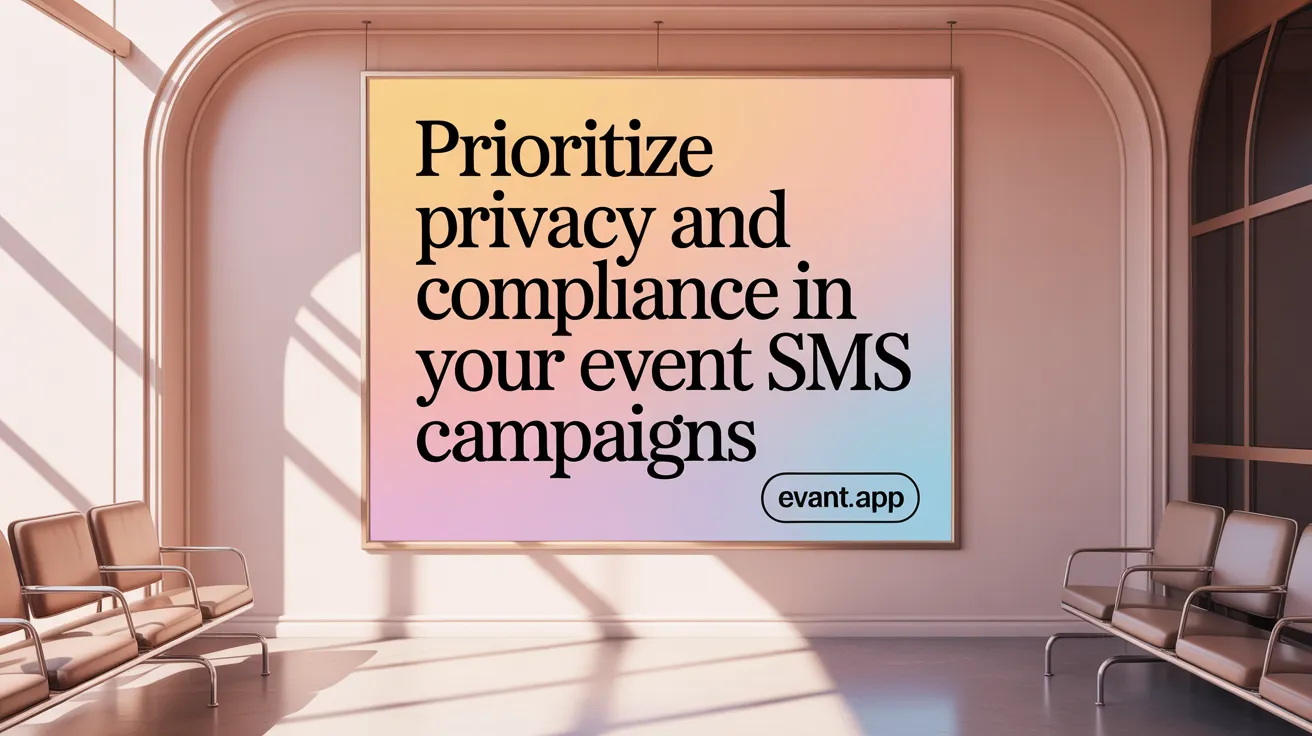
What guidelines and best practices should be followed to ensure compliance and ethical considerations in SMS messaging within event management?
When using SMS for event communication, organizations must prioritize ethical standards and legal compliance to foster trust and protect attendee privacy. Key practices include obtaining explicit opt-in consent from recipients before sending messages. This means attendees should actively agree to receive SMS alerts, typically through SMS opt-in shortcodes or online signup forms for SMS lists, and organizers must verify and document this consent.
Clear opt-out mechanisms are essential. Attendees should have the ability to unsubscribe easily at any time, with prompts included in every message. Once opted out, organizations must promptly stop sending messages to these individuals, ensuring respect for their preferences. This practice aligns with SMS privacy and consent and SMS opt-in and opt-out management.
Sender identification must be transparent. The sender's identity—whether a company's name or a recognizable brand—should be clearly stated in messages. This transparency prevents confusion and enhances credibility, as highlighted under transparent sender ID and SMS communication for events.
Timing of messages also plays a crucial role. Messages should generally be sent during appropriate hours, commonly between 9 a.m. and 8 p.m., to prevent disturbances during late or early hours. This consideration respects recipient convenience and maintains a positive communication relationship, reflecting effective SMS timing strategies and clear SMS messaging.
Data security and privacy are fundamental. Personal data collected during the opt-in process, including contact details and communication preferences, must be stored securely. Access should be restricted, and data handling needs to comply with privacy laws such as GDPR in Europe or CCPA in California. For technical guidance on data handling and SMS event data, see Azure Communication Services SMS events and SMS privacy and consent.
Legal frameworks governing SMS marketing differ by region but generally prohibit spam, misleading messages, and prohibited content. Messages should be targeted, relevant, and free of deceptive language. Disclosures such as legal disclaimers or necessary legal notices must be included as per local regulations, as discussed in SMS compliance in event marketing and challenges in SMS user experience.
By adhering to these guidelines—obtaining clear consent, providing easy opt-outs, transparent sender ID, respectful timing, and data protection—event organizers ensure responsible SMS marketing, foster attendee trust, and mitigate legal risks. For a comprehensive overview on best practices, refer to Event Management Best Practices and SMS for Event Management.
Harnessing SMS Platforms for Superior Event Outcomes
SMS platforms have unequivocally transformed event management by delivering unprecedented levels of communication efficiency, attendee engagement, and logistical coordination. Their high open and response rates, combined with advanced automation and integration capabilities, enable organizers to reduce no-shows, personalize interactions, and adapt dynamically during events. By adhering to best practices and compliance guidelines, event professionals can leverage SMS to create immersive, seamless experiences that resonate with attendees and drive future success. Embracing SMS technology is no longer optional but essential for optimizing event processes in a digitally connected era.
Related Blogs


How Community Churches Should Leverage SMS to Boost Engagement
Michael PedoeemStruggling with low church attendance? Discover how to leverage SMS to reach 98% of your congregation instantly and review the top 5 church communication platforms.
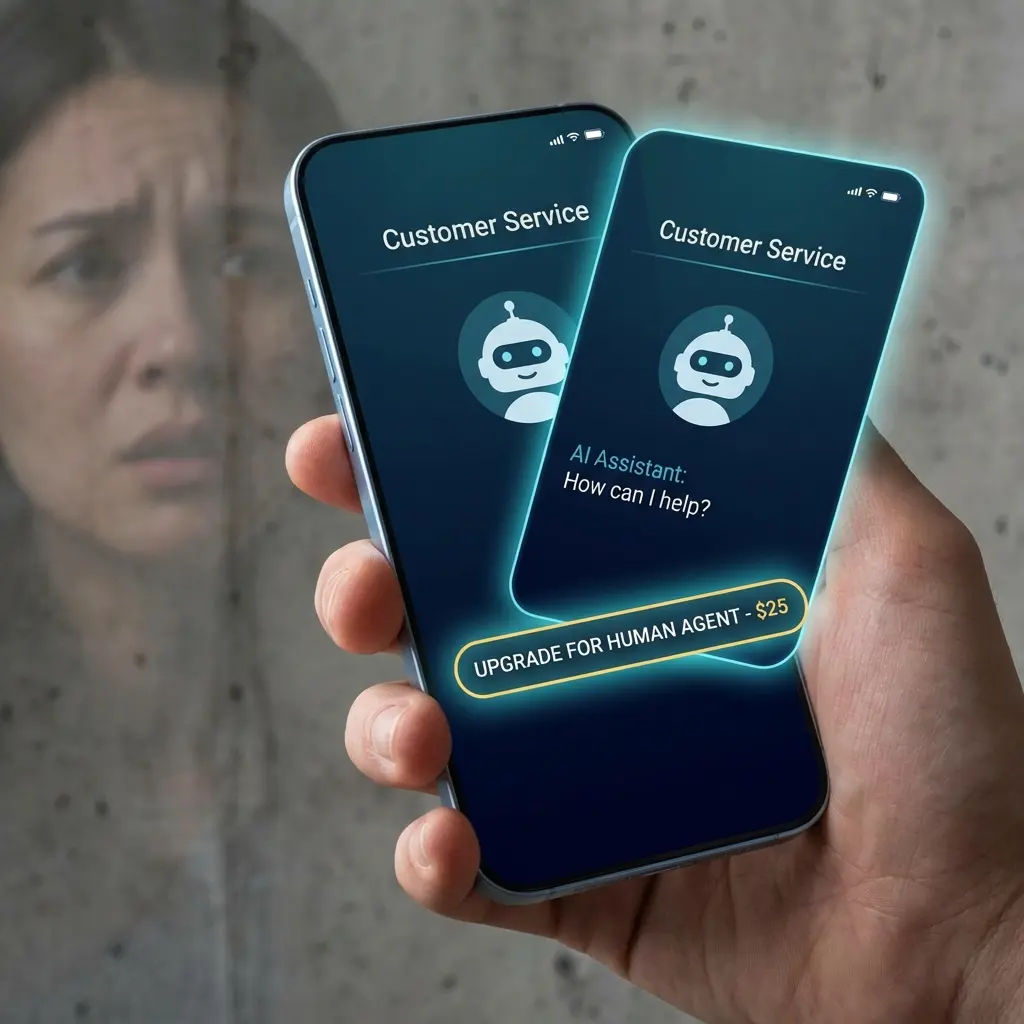

SMS for Churches: A Guide to Better Engagement
Michael PedoeemLearn how SMS for churches can boost engagement, improve communication, and streamline event management. Discover best practices for church texting today.
Ready to transform your community



